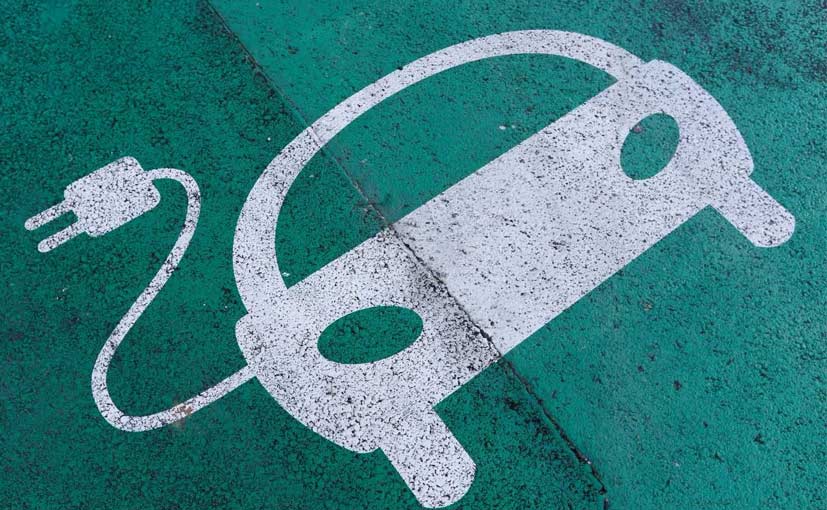It would be an understatement to say that COVID-19 has changed the way the world functioned, forever. In fact, it has changed the very fabri...
It would be an understatement to say that COVID-19 has changed the way the world functioned, forever. In fact, it has changed the very fabric of our global culture and economic activity. The aftermath of the pandemic has brought in uncertainty and chaos across industries and sectors worldwide and enabled us to witness a new face of the market. While economic activity and businesses have come to a standstill, the situation has also provided for an opportunity to strategise and prepare contingency plans for businesses.
Automotive Landscape

(Hero Electric has a wide range of electric two-wheelers on sale in India)
In India, the auto industry was going through a rough patch even before the pandemic arrived. The industry, collectively, had been battling weak consumer sentiment and the impact of Covid-19 simply made things worse. The virus outbreak is already showing an impact on customer sentiments and discretionary spending on automobiles.
That said, with social distancing norms in place across the country, there's a ray of hope for the languishing industry with an anticipation of reviving the demand of private vehicles, particularly the entry level two wheelers and small cars sale. As the newer BS6 vehicles have become costlier, there is a likelihood of a major part of demand gravitating towards the unsold BS4 vehicles or the pre-owned vehicles. While this would come as a relief for the auto industry, it does not bode well with the environment. Given that it's been greener and cleaner during the lockdown, because of the absence of vehicles on the roads. A continuity on that front would be the adoption of greener and pollution free vehicles.
Electric Vehicles And The Lockdown

(Hero Electric has a bunch of new models lined up for launch. One of them is the AE-29 electric scooter)
While business operations were hampered due to the country-wide lockdown, it has had a rather positive impact on the air we breathe. The major drop in the air quality index has been an eye opener and it is crucial to learn from this pandemic that we march forward with vigor and more respect for lives beyond ours. The environment has quietly regained its health by quite a margin. The sky is bluer than ever, the air pure, the lakes cleaner and even the temperature has come down. People are realising the importance of a sustained environment that was a farfetched dream and would be more than willing to adopt eco-friendly transportation methods to sustain the clean environment. In fact, India topped the charts as the worst polluted country and home to 5 of the 10 cities with the most hazardous air in 2019, however, as per a report by Greenpeace India, the pollution level came down by over 50 per cent during the first 10 days of the lockdown with pollution levels plummeting by 60 per cent in the national capital.

(The cost of running and maintaining an electric two-wheeler is significantly cheaper than a petrol powered two-wheeler)
While a majority of Indians would prefer private vehicles to reduce the odds of catching the contagious virus, they would also look for safer and economical commuting options leading to a further increase in the adoption of Low and City speed electric scooters. The preference would also change because of the low purchase price and lower running costs, besides ease of use, and low maintenance. In 2019-20, 1,52,000 electric two-wheelers were sold in India, out of these low and city speed scooters that travel at a maximum speed of 25 to 40 kmph constituted a whopping 90 per cent of all the electric two-wheelers sold last year. It is this affordable segment of electric scooters that has already started showing signs of breakout of major demand even during the lockdown period.
Blurring Lines Between Physical And Digital Purchases

(Sohinder Gill,CEO, Hero Electric, believes that physical and digital buying experiences will come together in future)
From a business point of view, the industry will need to be innovative in coming up with ideas on newer forms of customer connect right from generating sales to ensuring service, as the way customers used to interact with products and services, is going to transform drastically. With personal health, hygiene, and safety taking priority, the trust in the brand, and the confidence in the company doing the right thing to ensure complete safety and well-being of the customer, will become significant differentiators. This period has driven everyone to the web, necessitating companies to switch to newer methods like virtual showrooms and content based on augmented reality. Online sales: that has already become the focus of many big auto manufacturers and will be the next big platform for sales as people take more caution when it comes to their health and safety. Hero Electric, too has recently launched an online scheme to test the waters and has tasted success because of the assurance of the continued caution and actions during delivery and servicing of their wide range of electric scooters. This could become a major sales channel going forward.
Future Scenario

(Going forward Electric Vehicles will play a key role in personal mobility)
This lockdown has enabled companies to draw out their business plans for post Coronavirus - 'The New Normal' world. Indian companies have a great opportunity to apply creative thinking beyond the realms of comfort and create newer business networking lines, establish global business networks of suppliers, customers, and partners. Investments in these areas would take them far and insulate from future adversities such as a pandemic. As we overcome the current pandemic, the auto industry will witness a shift in its business strategy and as a result will be better prepared, plan forward and give a push to in-house departments. This approach will only result in rapid growth of the industry in the future.
from CarandBike - Latest News https://ift.tt/3cTeAnn






COMMENTS